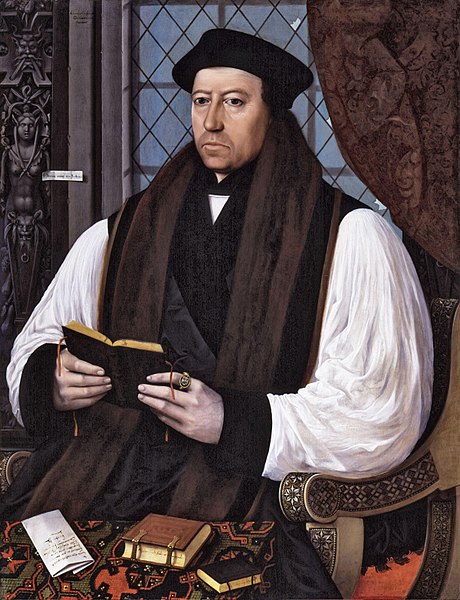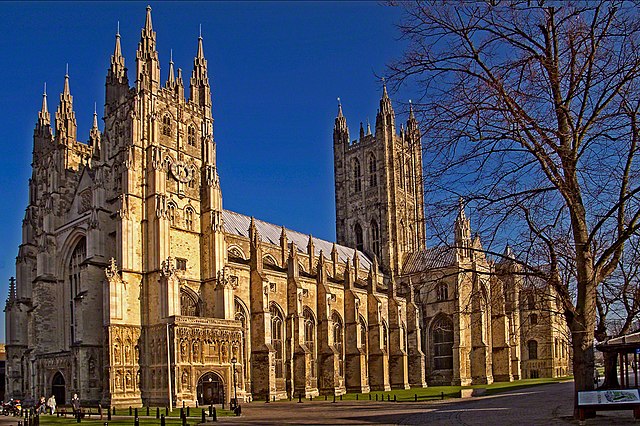Anglican doctrine is the body of Christian teachings used to guide the religious and moral practices of Anglican.
Thomas Cranmer
Title page of Cranmer's book of Homilies
John Henry Newman
William Temple, a leading figure of liberal social thought in Anglicanism in the early 20th century
The Anglican Communion is the third largest Christian communion after the Roman Catholic and Eastern Orthodox churches. Formally founded in 1867 in London, the communion has more than 85 million members within the Church of England and other autocephalous national and regional churches in full communion. The traditional origins of Anglican doctrine are summarised in the Thirty-nine Articles (1571). The archbishop of Canterbury in England acts as a focus of unity, recognised as primus inter pares, but does not exercise authority in Anglican provinces outside of the Church of England. Most, but not all, member churches of the communion are the historic national or regional Anglican churches.
Canterbury Cathedral
Anglican confirmation at the Mikael Agricola Church in Helsinki, Finland, in June 2013
The Chair of St Augustine (the episcopal throne in Canterbury Cathedral, Kent), seat of the archbishop of Canterbury in his role as head of the Anglican Communion







